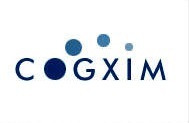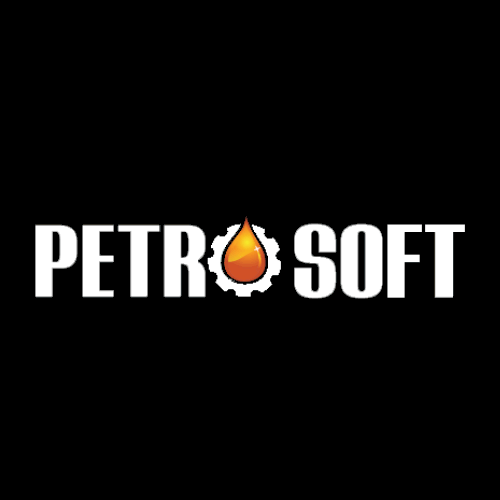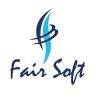Description
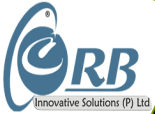
CRB
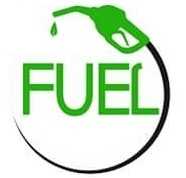
SP Infocom Fuel
Comprehensive Overview: CRB vs SP Infocom Fuel
To provide a comprehensive overview of CRB, SP, and Infocom Fuel, we need to first clarify the context in which these entities operate. However, based on the names alone, they appear to be related to the technology, communication, or energy sectors, as inferred from their names. Given that your inquiry is more conceptual without specific companies directly named in common business or financial databases, I'll offer a general analysis on how entities with such naming conventions might operate:
a) Primary Functions and Target Markets
-
CRB (Commodity Research Bureau):
- Primary Functions: Typically, a CRB would be involved in providing comprehensive data, analysis, and insights into commodities markets. This might include offering indices, pricing data, market trends, and financial analysis.
- Target Markets: Institutional investors, financial analysts, commodity traders, financial institutions, and corporations needing commodity insights.
-
SP (Could refer to Standard & Poor's or Service Providers in Infocom):
- Standard & Poor’s: Known for financial market intelligence, including credit ratings, indices, and investment research.
- Target Markets: Investors, asset managers, financial institutions, and corporations seeking credit ratings or market indices.
- Infocom Service Providers: Typically offer information and communication technology services.
- Target Markets: Businesses requiring IT infrastructure, communication solutions, cloud services, and data management.
-
Infocom Fuel (Hypothetical):
- Primary Functions: If related to energy, this could involve innovative energy solutions, possibly integrating IT with fuel technologies (e.g., smart grid solutions or digital energy management).
- Target Markets: Energy companies, smart city planners, automotive industries (if related to fuel efficiency technologies).
b) Market Share and User Base
Since the exact entities are not definitively identified, a hypothetical comparison might be:
-
CRB would have a niche but critical user base heavily concentrated in the financial and commodities sectors. The market share would be metaphorically tied to its brand’s reputation in providing reliable and accurate data.
-
SP (Standard & Poor's) generally commands a significant market share in financial intelligence due to its established credibility in credit ratings and indices. Its user base would be vast, spanning multiple sectors globally due to the reliance on credit ratings and benchmarks.
-
Infocom Fuel (if primarily focused on technological or energy solutions) might have a growing market share, especially if it's leveraging technology trends. The user base would be those adopting digital solutions for energy efficiency, likely a rapidly evolving segment.
c) Key Differentiating Factors
-
CRB vs. SP:
- CRB differentiates through specialized insights into commodities markets, whereas SP offers a broader financial market perspective, including equity and credit markets.
- SP’s credibility and historical data with indices like the S&P 500 give it a wide-ranging influence compared to a more focused commodity scope of CRB.
-
CRB/Infocom Fuel (Hypothetically in Energy Tech):
- CRB would focus on analytics and data, whereas Infocom Fuel might concentrate on applying technological innovations in energy management.
- Infocom Fuel could integrate IoT and AI into energy systems, contrasting CRB’s traditional data-providing role.
-
SP/Infocom Fuel:
- SP is entrenched in financial assessments, while Infocom Fuel might disrupt energy sectors with technological innovations.
- Infocom Fuel would differ if it offers substantial integration of ICT with energy solutions, a specialization not typical in SP’s offerings.
While this overview provides possible interpretations based on hypothetical entities resembling CRB, SP, and Infocom Fuel, obtaining accurate insights would require identifying specific companies or products. Definitions and market data would vary depending on the true nature of these entities.
Contact Info

Year founded :
1984
Not Available
Not Available
United States
Not Available

Year founded :
Not Available
Not Available
Not Available
Not Available
Not Available
Feature Similarity Breakdown: CRB, SP Infocom Fuel
To provide a detailed feature similarity breakdown for CRB (possibly referring to a specific software or tool) and SP Infocom Fuel, it's important to note that without specific and detailed information about these products, I can only offer a general comparison based on common features typically found in similar software products within the general category they might belong to, such as enterprise resource planning (ERP), customer relationship management (CRM), or industry-specific solutions like those in telecom or energy sectors. Here's an illustrative breakdown based on typical features:
a) Core Features in Common
- Data Management: Both systems likely offer robust databases for storing and managing large volumes of data, essential for enterprise-level operations.
- Reporting and Analytics: These products probably include tools to generate reports and analytics, enabling users to glean insights from their data.
- User Access Controls: Common features would include user authentication, role-based access controls, and audit logs to ensure security and compliance.
- Integration Capabilities: They might provide APIs or integration modules for connecting with other systems and applications.
- Dashboarding: Each product likely has a customizable dashboard for monitoring key performance indicators and real-time data visualization.
- Automation: Both may include automation features for repetitive tasks, workflow management, and notifications.
b) User Interface Comparison
- Design Aesthetics: The UI design could vary significantly, with one offering a more modern, sleek interface and the other having a more functional, utilitarian design.
- Navigation Experience: One product may offer easier navigation with intuitive menu structures, while the other might cater to a more technical audience with power-user shortcuts.
- Customization: One platform might allow more customization options to tailor the UI to user needs, with drag-and-drop widgets, customizable themes, or different layout configurations.
- Mobile Accessibility: They might differ in their approach to mobile UI, with one offering a responsive web design or a dedicated mobile app, while the other prioritizes desktop interfaces.
c) Unique Features
- CRB: If CRB refers to a specific product, it might offer unique features such as enhanced industry-specific modules that cater to particular business requirements not found in more generalized solutions. This could include unique data handling methodologies or proprietary algorithms.
- SP Infocom Fuel: This product might have unique selling propositions like superior integration with telecom infrastructure, advanced communication management tools, or specific features that address regulatory compliance in communication markets.
Overall, the uniqueness and effectiveness of these products would depend not only on their technical specifications and features but also on how well they fit into a particular business environment and meet the specific needs of the users. For more precise differentiation, reviewing product documentation, user reviews, and direct product comparisons would be necessary.
Features

Not Available

Not Available
Best Fit Use Cases: CRB, SP Infocom Fuel
CRB (Cloud Resource Broker) and SP Infocom Fuel are both specialized products designed to meet specific needs within the realm of business and technology solutions. Here's a breakdown of their best fit use cases, including ideal business types, scenarios, and industry applications:
a) For what types of businesses or projects is CRB the best choice?
CRB – Cloud Resource Broker:
-
Businesses with Complex Cloud Environments:
- Companies utilizing multi-cloud or hybrid cloud strategies benefit from CRB's ability to efficiently manage resources across various cloud platforms (e.g., AWS, Azure, Google Cloud).
- Enterprises looking to optimize cloud costs, performance, and compliance find CRB valuable in providing visibility and control.
-
Large Enterprises with Diverse IT Assets:
- Large corporations with varied IT needs and geographically dispersed operations leverage CRB to unify their cloud resource management.
- Organizations needing a centralized platform for managing cloud resources across multiple departments can use CRB for streamlined operations.
-
Projects Requiring Dynamic Resource Allocation:
- IT projects with fluctuating resource demands, such as load testing or data analytics, benefit from CRB’s dynamic resource allocation and scalability.
b) In what scenarios would SP Infocom Fuel be the preferred option?
SP Infocom Fuel:
-
Small to Medium-sized Enterprises (SMEs):
- SMEs looking for cost-effective communication and IT solutions benefit from Fuel's offerings designed to streamline and enhance technology use without a large IT department.
-
Businesses in Need of Enhanced Connectivity Solutions:
- Companies seeking to improve internal and external communication infrastructures find Fuel suitable due to its focus on connectivity solutions.
-
Industries With High External Communication Needs:
- Service-based industries, such as customer support centers or sales-driven companies, can utilize SP Infocom Fuel to ensure reliable and efficient communication channels.
d) How do these products cater to different industry verticals or company sizes?
CRB:
-
Industry Vertical Adaptability:
- CRB caters well to technology-driven industries such as IT, finance, and healthcare due to its robust cloud management features.
- Particularly useful in sectors that are undergoing digital transformation and require intricate cloud solutions.
-
Company Size:
- Designed for large enterprises and multinational corporations with complex IT needs.
- Suitable for mid-sized businesses that have comprehensive cloud-based operations.
SP Infocom Fuel:
-
Industry Vertical Adaptability:
- SP Infocom Fuel is suitable for various sectors where communication and IT infrastructure are crucial, such as retail, logistics, and education.
- Provides scalable solutions that can adapt to changes in communication technology needs.
-
Company Size:
- Primarily targets SMEs looking to enhance their technology stack without significant investment.
- Offers flexibility for both small businesses and growing companies that need scalable communication solutions.
In summary, CRB is best suited for businesses with complex, multi-cloud environments, whereas SP Infocom Fuel caters to smaller organizations focusing on cost-effective, scalable communication solutions. The choice between these products depends on the specific needs of the company or project in question.
Pricing

Pricing Not Available

Pricing Not Available
Metrics History
Metrics History
Comparing undefined across companies
Conclusion & Final Verdict: CRB vs SP Infocom Fuel
To determine the best overall value between CRB and SP Infocom Fuel, we need to consider several aspects such as cost, quality, features, customer support, and user feedback. Here’s a detailed analysis:
a) Best Overall Value
CRB: This product may offer robust features that are suitable for advanced users or businesses that require specific functionalities. If the primary need is for high-quality and feature-rich solutions, CRB might be considered more valuable.
SP Infocom Fuel: This product might be more attractive due to its competitive pricing and ease of use. It could be ideal for small to medium-sized businesses or individuals who are cost-conscious but still require dependable performance.
Verdict: If advanced functionality and robust support are prioritized and budget allows, CRB may offer the best value. However, for cost-effectiveness and straightforward usage, SP Infocom Fuel might be the better choice.
b) Pros and Cons
CRB Pros:
- Advanced feature set for comprehensive needs.
- Strong customer support and service.
- Reliability and durability in performance.
CRB Cons:
- Potentially higher cost.
- Possible complexity in setup or use, requiring more technical expertise.
SP Infocom Fuel Pros:
- Cost-effective, potentially lower upfront and ongoing costs.
- User-friendly, suitable for those without extensive technical knowledge.
- Sufficient features for standard requirements.
SP Infocom Fuel Cons:
- May lack certain advanced features present in CRB.
- User support might not be as comprehensive.
c) Recommendations
-
Assess Needs: Users should first evaluate what their specific needs are. If advanced features and superior support are crucial, CRB might be more appropriate. Those looking for affordability and simplicity should consider SP Infocom Fuel.
-
Budget Consideration: If budget constraints exist, SP Infocom Fuel is likely the better option. On the other hand, if the business can afford to invest more for additional features, CRB could yield long-term benefits.
-
Pilot Testing: If possible, users should pilot both products to see which aligns best with their needs in practice. User experience and ease of integration with existing systems can be pivotal.
-
Peer Reviews: Read user reviews and ask for peer recommendations to identify common satisfaction or dissatisfaction points.
-
Scalability: Evaluate the scalability of each product based on future growth plans. CRB might offer more in terms of scalability, making it suitable for growing businesses.
By weighing these factors, users can make an informed decision between CRB and SP Infocom Fuel based on their specific needs, budget constraints, and long-term business objectives.
Add to compare
Add similar companies
